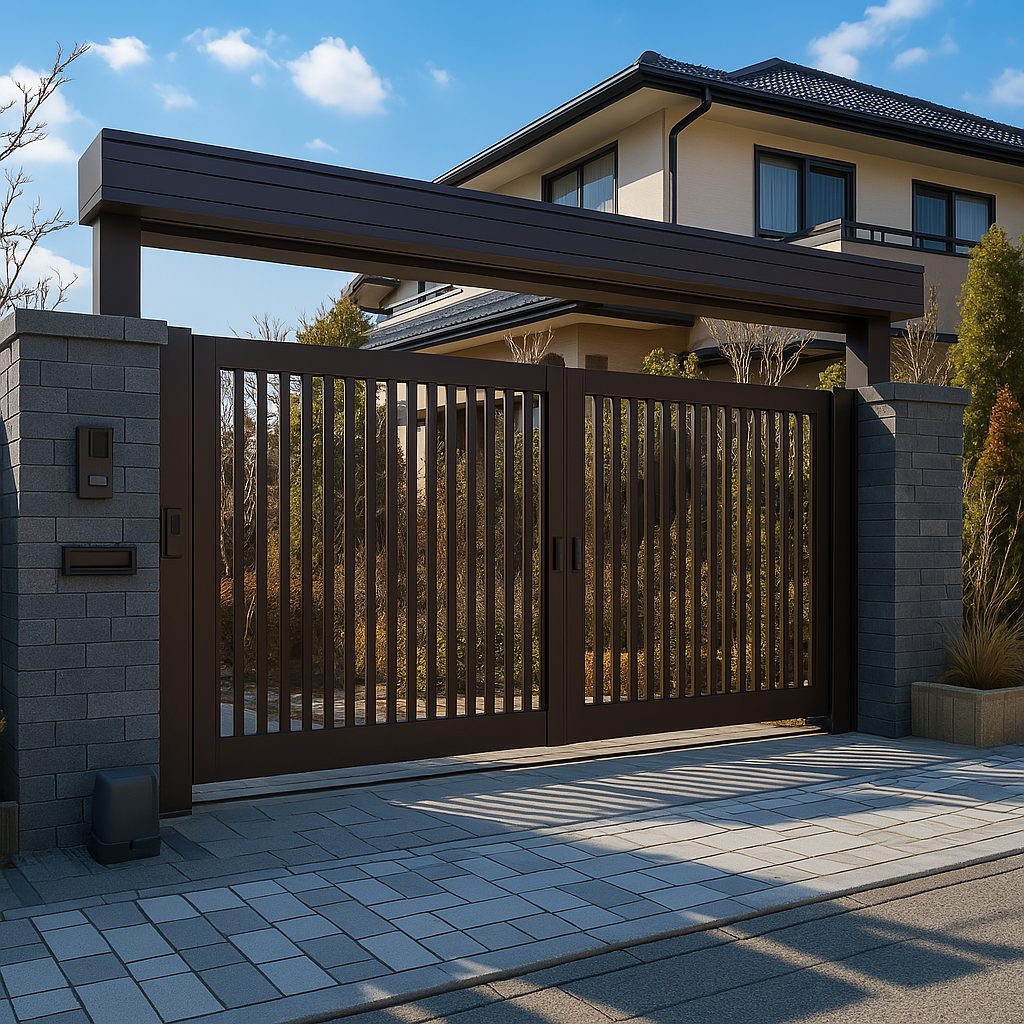How Do Automatic Gate Sensors Work?
Automatic gate sensors are key to making modern gate systems secure, efficient, and convenient. Whether you’re installing a gate for your home or business, these sensors play an important role in ensuring the gate opens and closes safely when needed.
If you’re wondering how these sensors work, it’s simpler than you might think. They detect movement, pressure, or objects in the gate’s path, then send a signal to the control system to activate the motor. This automated process helps improve security and eliminates the need for manual operation.
What Is an Automatic Gate Sensor?
An automatic gate sensor is a device that detects movement, pressure, or obstacles to control when a gate opens or closes. These sensors are designed to improve both security and convenience by ensuring the gate operates only when triggered.
You’ll often find automatic gate sensors in residential driveways, commercial parking lots, and gated communities. They’re especially helpful in busy areas where managing access manually would be inconvenient.
For those considering adding a new gate system, exploring professional gate installation services can help ensure your sensors are positioned for optimal performance.

Types of Automatic Gate Sensors and How They Work
Different types of sensors use unique methods to detect motion or obstructions. Understanding how each one works can help you decide which option best suits your property.
Infrared Sensors
Infrared sensors emit an invisible beam of light between two points. If something breaks that beam — like a car, person, or pet — the sensor triggers the gate to stop or open. Infrared sensors are often used in residential areas since they’re effective in controlling access at driveways or pedestrian gates.
Magnetic Loop Sensors (Induction Loops)
Magnetic loop sensors are embedded beneath the ground and detect changes in electromagnetic fields when a vehicle passes over them. This type of sensor is ideal for busy driveways, parking lots, or commercial properties where vehicle detection is the main concern.
Photoelectric Sensors
Photoelectric sensors use a focused beam of light to detect objects. If something interrupts the beam, the gate automatically stops or reverses to prevent accidents. These sensors are often found in areas with frequent foot or vehicle traffic.
Pressure Sensors
Pressure sensors activate when weight or pressure is applied to a designated area, such as a driveway or entry point. These sensors are often used in industrial settings or for high-security gates.
Motion Sensors
Motion sensors use microwave or ultrasonic waves to detect movement within a set range. These sensors are useful for properties that require quick, automated access — like pedestrian walkways or smaller gates.
If you’re unsure which sensor type is best for your property, consulting with an expert in automatic gate installation and repair can help you choose the right option.
How Do Automatic Gate Sensors Work Step by Step?
While gate sensors may seem complex, their operation is fairly straightforward:
- Detection: The sensor identifies movement, pressure, or an object interrupting its beam.
- Signal Transmission: The sensor sends a signal to the gate’s control panel.
- Gate Activation: The control panel activates the motor to open or close the gate based on the sensor’s input.
- Safety Response: If an object is detected during closing, most systems are designed to stop or reverse the gate to prevent accidents.
If your gate isn’t functioning properly, a professional gate repair service can diagnose and resolve sensor issues efficiently.
Benefits of Automatic Gate Sensors
Automatic gate sensors offer several benefits that improve both safety and convenience:
Enhanced Security
By automatically detecting movement, gate sensors help prevent unauthorized access and ensure the gate closes properly after someone enters or exits.
Improved Convenience
Sensors eliminate the need to manually operate the gate, which is especially helpful in busy households or commercial properties with frequent traffic.
Increased Safety
Gate sensors are designed to detect people, pets, or objects in the gate’s path, reducing the risk of accidents or property damage.
How to Troubleshoot Automatic Gate Sensors
If your automatic gate isn’t responding properly, the issue may be sensor-related. Here’s what to check:
- Look for Obstructions: Debris like leaves, dirt, or spider webs can block the sensor’s beam. Cleaning the area may resolve the issue.
- Check Sensor Alignment: Sensors need to face each other correctly to function. Adjust their positioning if they appear misaligned.
- Clean the Sensor Lenses: Dirty lenses can disrupt detection. Use a soft cloth to gently clean them.
- Test the Power Supply: Ensure the sensor is connected to a working power source.
- Review Control Panel Settings: Programming errors may cause the gate to respond incorrectly, so resetting or adjusting the settings may help.
If these steps don’t resolve the issue, it’s best to contact a professional for inspection and repairs.
Maintaining Automatic Gate Sensors
Regular maintenance can help prevent sensor malfunctions and ensure reliable performance. Here are a few key tips:
- Clean sensor lenses regularly to prevent dirt and debris from blocking the beam.
- Inspect wiring and connections to catch signs of wear or damage.
- Test sensor positioning every few months to confirm they’re aligned properly.
- Schedule professional maintenance to address technical issues before they become costly problems.
Choosing the Right Automatic Gate Sensor for Your Property
When selecting a gate sensor, consider factors like:
- Property Type: Residential homes may benefit from infrared or photoelectric sensors, while commercial sites often rely on magnetic loop sensors for vehicle detection.
- Traffic Flow: For high-traffic areas, choose a sensor with fast response times.
- Security Needs: For heightened security, pressure sensors or motion detectors may be ideal.
Professional Installation and Support
To get the most out of your automatic gate sensors, professional installation is key. Proper placement ensures sensors detect movement accurately, preventing false alarms or missed detections.
At Zimmer Gates & Doors, we specialize in custom gate solutions designed to enhance security and convenience. Whether you’re adding sensors to an existing gate or installing a brand-new system, we’ll ensure everything is set up for optimal performance.
Contact Zimmer Gates & Doors for Reliable Automatic Gate Solutions
If you’re looking to improve your property’s security with automatic gate sensors, Zimmer Gates & Doors can help. Contact us today to learn more about how automatic gate sensors work and find the best solution for your home or business. We also provide expert garage door installation and repair services for complete property security.

